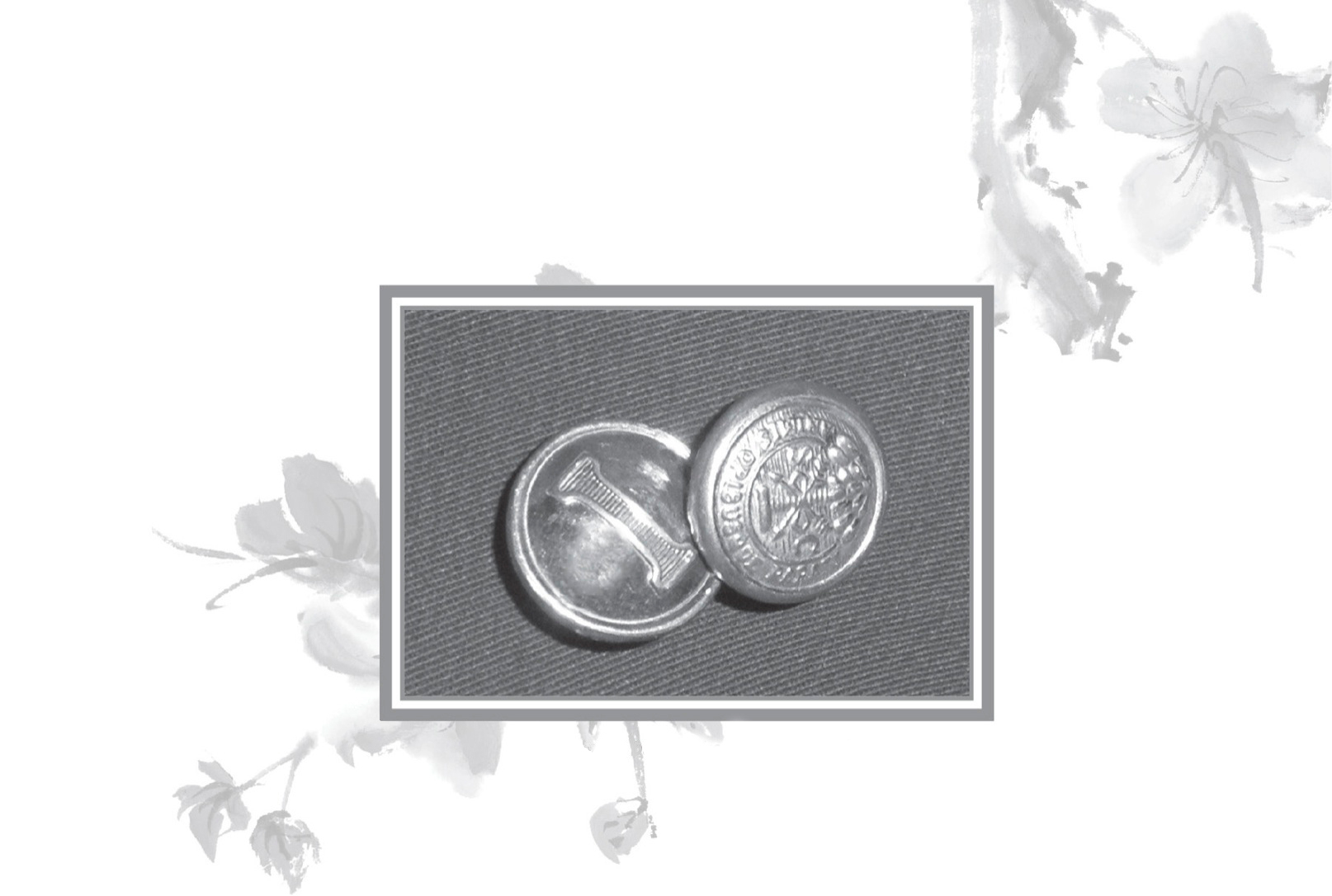
An example of the brass buttons from the Confederate uniform.
Two Brass Buttons
By now you will have realized that my relatives were all Southerners. My father’s grandfathers Womeldorf and Clements were Virginia farmers and never owned slaves. Grandfather James Clements (sometimes spelled Clemens) was the younger brother of John Clements, who left Amelia County for Missouri and became the father of Samuel Langhorne Clemens in 1835. Which makes me in Southern relative counting, the first cousin twice removed of Mark Twain, if the family history is to be believed. Grandpa Clements lived past his hundredth birthday. He was not a Union sympathizer, but he did not believe in either slavery or war, so he paid someone to join the Confederate Army in his place.
My mother’s grandparents, coming from Georgia and Alabama, were Confederates through and through. Great-Grandfather Daniel was a slave owner, although my grandmother told me that he granted them all freedom in his will. Which sounds nice until you consider that he made sure he had their service all his life. Since I have yet to meet an African American named “Goetchius,” I don’t believe my other great-grandfather was a slave owner, but one of my favorite “kitchen sink stories” comes down from Goetchius family lore.
Slave owners or not, the fact remains that all my ancestors were from the South and some even fought and died for the losing side. Perhaps that’s why I was long resigned to my failure to publish. Southerners are much more comfortable with losing than winning. It seems more romantic, somehow. And now for one of my favorite family stories.
My grandfather Goetchius’s two eldest brothers, John and Edward, were both killed while serving in the Confederate Army. This story is about John, who was a private in the 2nd Georgia Battalion Infantry.
I had always been told that John had taken part in Pickett’s Charge, the bloody assault on Cemetery Ridge on July 3, 1863. Actually he was mortally wounded very close to Cemetery Hill on July 2 the day before that tragic charge. He was carried by unknown hands to a Union field hospital, where a chaplain, who was ministering to the injured, realized that the young man was dying and asked him if there was any message he would like to send to his loved ones. John asked him to cut two of the brass buttons off his uniform and take the flags from his lapels and send them to his parents and his sweetheart.
He lived long enough to give the chaplain his name—John Goetchius—but died before he could tell the kind man where his home was.
For many years the chaplain carried the two brass buttons and Confederate flags around in his pocket to remind him of his unkept promise. Then one day he happened to be boarding a ferry boat somewhere in the South and heard the African American ferry boat attendant greet an elderly gentleman as “Marse Goetchius.” The name was so unusual that the chaplain immediately approached the stranger. He introduced himself and asked if by any chance Mr. Goetchius had lost a relative in the Battle of Gettysburg. Yes, the old man said, one of my sons died there. The chaplain produced the buttons and the flags, and later accompanied my great-grandfather to Gettysburg. They found the trench where the dead Confederates were buried, I was told, because the corn was so much greener there. How long it took, I have no idea, but they found my great-uncle’s body, identifying the remains by the dental work, and took them home to be buried in the family plot.
My mother was born more than thirty years after her uncle’s death, but she remembered John’s fiancée, who carried the brass buttons with her always and reminded the Goetchius girls that she should have been their aunt.